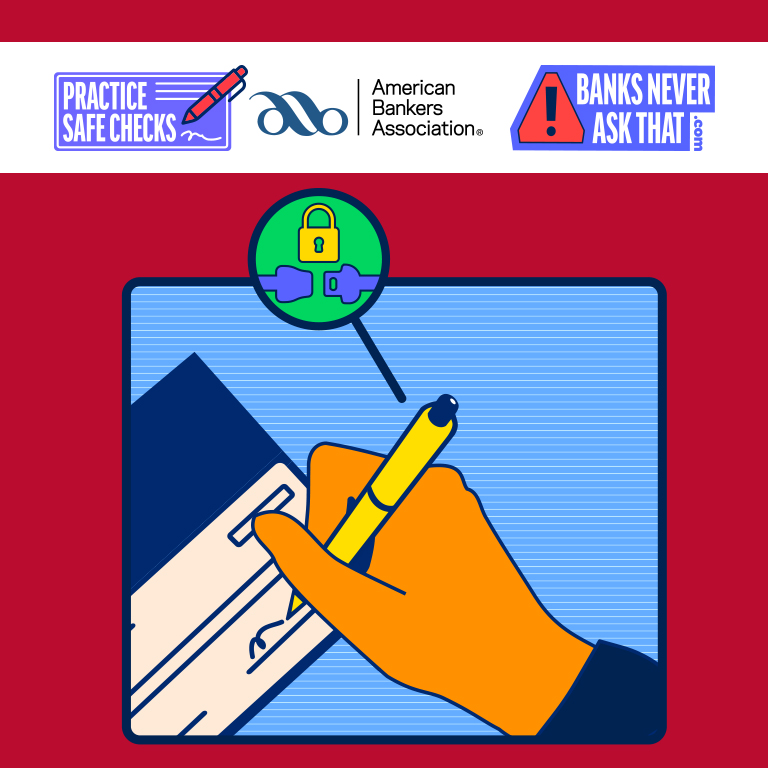Every day, thousands of people fall victim to fraudulent emails, texts, and calls from scammers pretending to be their bank.
And in this time of expanded use of online and mobile banking, the problem is only growing worse. In fact, the Federal Trade Commission’s report on fraud estimates that American consumers lost a staggering $10 billion to phishing scams and other fraud in 2023 — an increase of 13.6% over 2022.
It’s time to put scammers in their place.
Online scams aren’t so scary when you know what to look for. And at First National Bank, we remain committed to helping you spot them as an extra layer of protection for your accounts and personal information.
This month, we’ve joined with the American Bankers Association and banks across the country in a nationwide effort to fight phishing one scam at a time.
We want every bank customer to become a pro at spotting a phishing scam and stopping bank impostors in their tracks. It starts with these four words: Banks Never Ask That.
Because when you know something sounds suspicious, you’ll be less likely to be fooled.
Can you spot a phishing scam?
Here are four examples of phishing scams that are full of red flags:
- Text message: If you receive a text message from someone claiming to be First National Bank asking you to sign in, or offer up your personal information, it’s a scam. Banks Never Ask That.
- Email: Watch out for emails that ask you to click a suspicious link or provide personal information. The sender may claim to be someone from First National Bank, but it’s a scam. Banks Never Ask That.
- Phone call: Would your bank ever call you to verify your account number? No! Banks Never Ask That. If you’re ever in doubt that the caller is legitimate, just hang up and call us directly at (605) 335-5200 or 800-339-1160.
- Payment apps: Beware of text messages from someone claiming to be First National Bank saying your account has been hacked. The scammer may ask you to send money to a new account they’ve created for you, but that’s a scam. Banks Never Ask That.
You’ve probably seen some of these scams before, but that doesn’t stop a scammer from trying.
For more tips, videos, an interactive quiz, and a scam-spotting game to help you keep phishing criminals at bay, visit www.BanksNeverAskThat.com.


